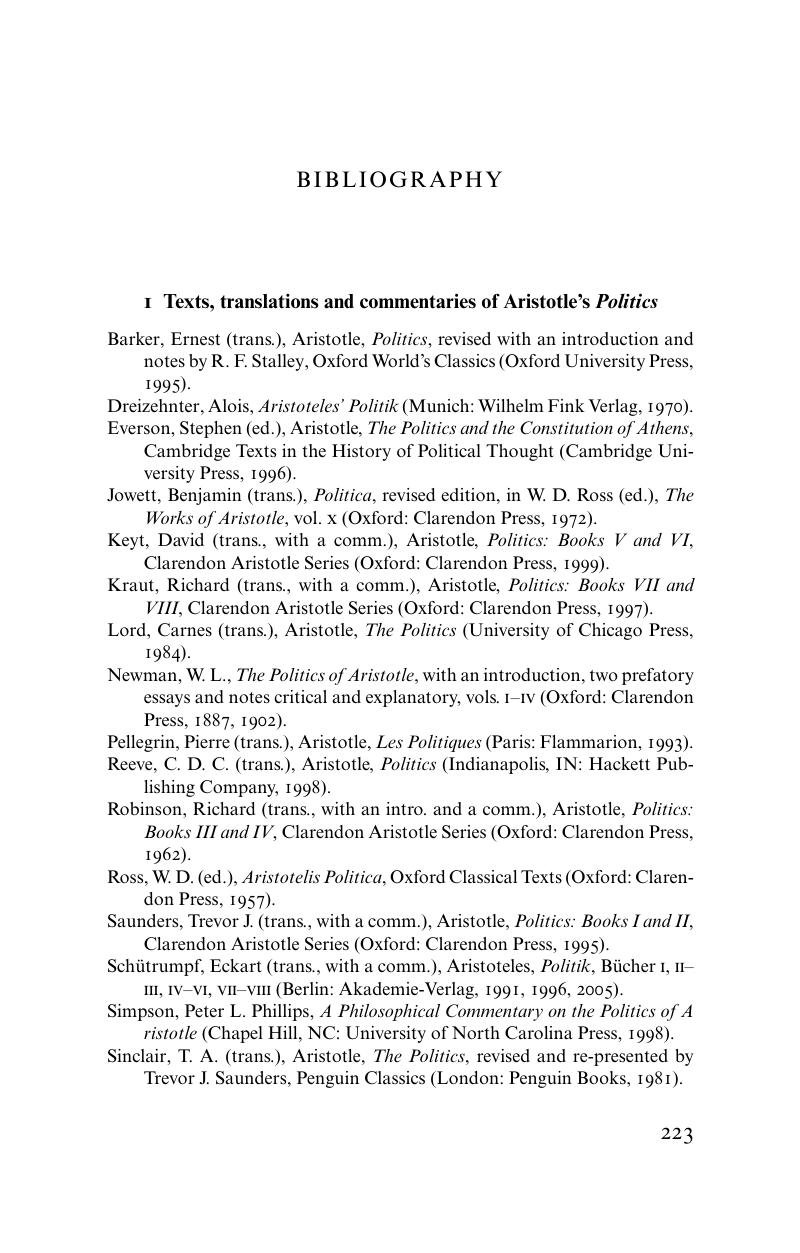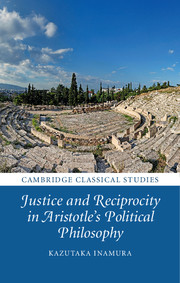Book contents
- Justice and Reciprocity in Aristotle's Political Philosophy
- Cambridge Classical Studies
- Justice and Reciprocity in Aristotle's Political Philosophy
- Copyright page
- Contents
- Book part
- Glossary
- Chapter 1 Aristotelian political theories in a liberal democracy
- Chapter 2 The good life and a good polis
- Chapter 3 Democracy, polity and the mixed constitution
- Chapter 4 Civic virtue
- Chapter 5 Civic friendship
- Chapter 6 Reciprocity in the political economy
- Conclusions
- Bibliography
- Index locorum
- General index
- References
Bibliography
Published online by Cambridge University Press: 05 September 2015
- Justice and Reciprocity in Aristotle's Political Philosophy
- Cambridge Classical Studies
- Justice and Reciprocity in Aristotle's Political Philosophy
- Copyright page
- Contents
- Book part
- Glossary
- Chapter 1 Aristotelian political theories in a liberal democracy
- Chapter 2 The good life and a good polis
- Chapter 3 Democracy, polity and the mixed constitution
- Chapter 4 Civic virtue
- Chapter 5 Civic friendship
- Chapter 6 Reciprocity in the political economy
- Conclusions
- Bibliography
- Index locorum
- General index
- References
Summary

- Type
- Chapter
- Information
- Justice and Reciprocity in Aristotle's Political Philosophy , pp. 223 - 237Publisher: Cambridge University PressPrint publication year: 2015

